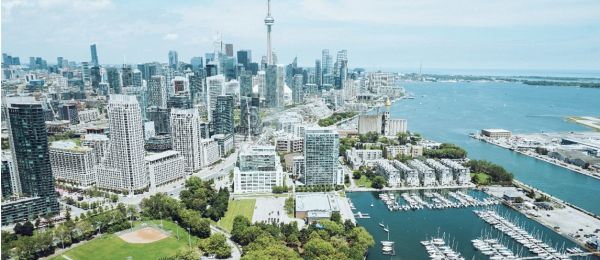Canada’s Provinces Face New Debate Over Revenue Sharing From Online Gambling
Canada’s provincial governments are entering a critical phase in redefining how online gambling and sports wagering revenues are distributed. With Ontario setting the benchmark through its iGaming model and Alberta and British Columbia reassessing their frameworks, discussions now center on whether more of these profits should remain in provincial programs or be redirected to responsible gambling and community initiatives.
As provinces refine their fiscal strategies, transparency around where gambling dollars go has become a public talking point. Analysts note that online casinos in Canada now contribute a substantial portion of annual gaming revenue, with several provincial audits revealing higher-than-expected tax inflows since 2022.
The challenge lies in balancing these profits with growing calls for better funding of addiction prevention and education, ensuring that the country’s expanding digital casino market benefits more than just operators.
Ontario’s iGaming Leadership
Ontario remains Canada’s leader in regulated iGaming, setting a precedent with its open market structure that allows private operators under the supervision of iGaming Ontario. The province reported more than $63 billion in total wagers and $2.4 billion in gross gaming revenue during the 2023-24 fiscal year, generating approximately $470 million in direct government revenue.
Policymakers in Queen’s Park have pointed to these figures as proof that Ontario’s regulated system provides a secure, profitable framework for both government and players.
Ontario’s iGaming industry accounts for more than 70 percent of Canada’s regulated online gambling revenue, according to recent reports from the Alcohol and Gaming Commission of Ontario.
The province’s market saw an 18 percent year-over-year increase in operator participation and a 25 percent rise in player registrations, signaling strong public engagement and sustained revenue growth. Analysts note that this performance has motivated other provinces to explore competitive, open-market approaches.
Alberta’s Fiscal Review of Online Wagering
Alberta is conducting a major fiscal review to assess the future of its sports wagering and iGaming framework. The province’s 2024 report from Alberta Gaming, Liquor and Cannabis (AGLC) confirmed that annual online wagering revenue surpassed $1.7 billion, up from $1.2 billion in 2022, primarily driven by increased participation in mobile betting.
With over 60 percent of Alberta bettors using private offshore platforms, government officials argue that regulation could recapture millions in lost tax revenue. Early economic modeling projects that a regulated market like Ontario’s could generate $150 million annually in net provincial income while supporting local treatment and prevention programs for problem gambling.
British Columbia’s Policy Considerations
British Columbia is evaluating whether to adjust its long-standing PlayNow platform or allow new operators to enter the market. The British Columbia Lottery Corporation (BCLC) reported $1.9 billion in revenue from online and retail gambling combined in 2023, of which $424 million came directly from online gaming.
Provincial lawmakers are debating whether BCLC should allocate a higher portion of its online revenue to community grants and responsible gaming funds. A recent public opinion poll by Research Co. found that 68 percent of British Columbians believe that more iGaming profits should be reinvested in addiction prevention programs rather than general revenue.
The Role of Provincial Audits and Fiscal Transparency
Since 2022, several provincial audits have revealed discrepancies between projected and actual gambling revenue, particularly in the digital sector. These audits have prompted renewed calls for transparency in how funds are distributed and spent across social initiatives.
A joint report by the Canadian Gaming Association and KPMG found that total provincial online gambling revenue exceeded $4.8 billion nationwide in 2023, roughly 40 percent higher than forecasted two years earlier. Despite this surge, allocations to responsible gambling initiatives averaged less than 1.5 percent of total profits, a figure that has drawn criticism from public health advocates.
Public Opinion and Political Pressure
Public attitudes toward gambling revenue have become increasingly divided. Surveys conducted across Ontario, Alberta, and British Columbia in mid-2024 show that while most residents support legalization and regulation, there is strong concern about where profits are directed.
A 2024 Angus Reid survey indicated that 54 percent of Canadians believe provinces are not transparent enough about gambling revenues, while 62 percent want a fixed percentage dedicated to mental health and addiction treatment. These findings have amplified political pressure on provincial finance ministries to provide clearer accounting.
Inter-Provincial Revenue Models
The diversity of regulatory approaches across provinces has created complex fiscal outcomes. While Ontario’s open market model emphasizes competition, British Columbia and Quebec rely on state-run monopolies.
In 2023, Ontario generated roughly $470 million in tax revenue from online gambling, compared to $138 million in British Columbia and $94 million in Quebec. Economists warn that differing tax rates and licensing rules could lead to uneven growth, with smaller provinces struggling to attract investment without national coordination.
Allocation of Funds to Social Programs
Funding distribution has emerged as one of the most contentious issues in the gambling revenue debate. Provinces must decide how much revenue should be earmarked for health services, education, and addiction recovery programs.
Ontario currently dedicates $31 million annually to the Responsible Gambling Council, while British Columbia allocates $11 million to its PlaySmart initiative. Critics argue these figures represent less than 2 percent of total gambling revenue, insufficient given the rising prevalence of gambling-related harm documented in 2023 health reports.
The Role of Indigenous Partnerships
Indigenous communities have long been stakeholders in Canada’s gambling sector, operating casinos and gaming centers under revenue-sharing agreements with provincial governments.
A 2023 study by Indigenous Gaming Canada found that First Nations-operated casinos generated $653 million in revenue, with approximately $89 million shared with provincial partners. However, Indigenous leaders are requesting more equitable frameworks that reinvest a greater share of these funds into local infrastructure and social services.
Responsible Gambling Initiatives
Efforts to mitigate problem gambling remain a central pillar of the debate. Policymakers are reviewing whether current initiatives align with the rapid growth of digital platforms.
A 2024 report from the Canadian Centre on Substance Use and Addiction showed that 3.4 percent of adults in Canada exhibit signs of gambling addiction, a figure that has increased from 2.1 percent in 2019. Public health experts attribute this rise to easier online access and insufficient funding for prevention campaigns.
Economic Outlook and Future Legislation
The federal and provincial governments are now assessing how to modernize gaming laws to reflect the evolving online market. Economic projections suggest continued expansion, but policy adjustments will determine how benefits are shared.
According to Deloitte’s 2024 Canadian Gaming Outlook, the national iGaming sector is expected to reach $6.3 billion in annual revenue by 2027, with Ontario maintaining a 68 percent market share. Legislators anticipate new frameworks that emphasize transparency, accountability, and sustainable revenue-sharing between government, operators, and community programs.
Final Thoughts
Canada’s evolving gambling economy has forced policymakers to confront difficult questions about fairness, transparency, and social responsibility. As Ontario, Alberta, and British Columbia redefine their models, each faces the challenge of balancing economic opportunity with public accountability. The country’s success in this area will depend on clear policy direction, improved oversight, and stronger reinvestment in the communities that sustain the industry.
- B.E. Delmer, Gambling911.com














